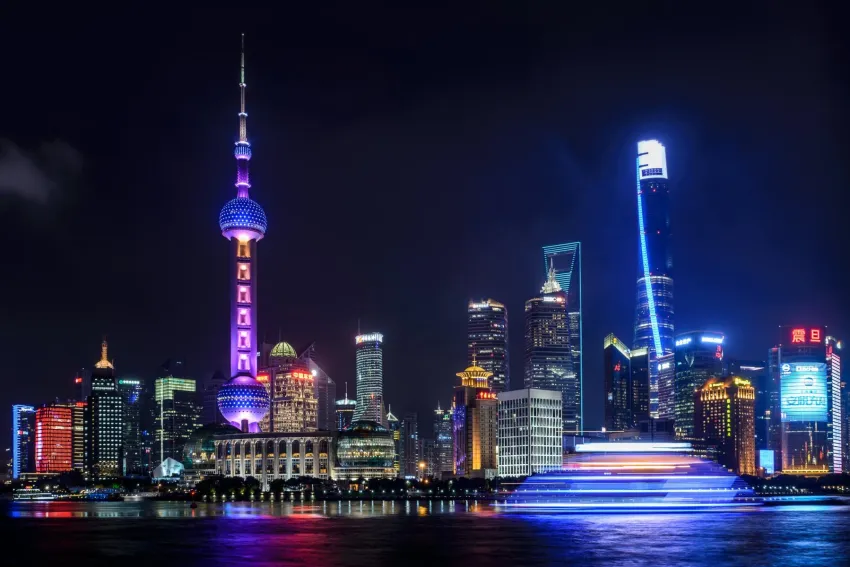
Global banks on a hiring craze as they vie for rich Asians’ assets
HSBC, Goldman Sachs, and Citi are all eyeing a piece of the region's trillion-dollar financial market.
The world’s biggest banks are all embarking on massive hiring sprees in Asia as part of their strategy to woo the region’s high net-worth individuals in entrusting money in the banks’ hands.
Three of the world’s “too big to fail” banks—HSBC, Goldman Sachs and Citigroup—have been reported to be rapidly expanding their Asian (and in particular, China-based) headcounts as they vie for a piece of the region’s trillion-dollar financial market.
Citigroup has already hired almost 650 wealth professionals in APAC during the first quarter of 2021, over 130 being relationship managers (RM) and private bankers (PB). This is part of its plans to add over 2,300 wealth staff—including 1,100 RMs and PBs, whilst it shaves off its commercial banking business in 10 Asian markets, keeping only operations in Singapore and Hong Kong. It is a testament to the end of the universal banking model in Asia, where local banks have gotten better and fintechs and digitization have sliced business and margins from the foreign banks. But when it comes to having the widest range of international investment products to offer rich clients, the global banks still have the edge.
HSBC alone is hiring over 5,000 people in its wealth management business over the next five years, and is shelling out $6b in total investments for its operations in Asia over the same period, according to CEO Noel Quinn in the bank’s results announcement last February.
“[We’re] going to invest more than $3.5 billion in wealth in Asia in the next five years to achieve three things.We want to serve high net worth and ultra-high net worth clients in Hong Kong, mainland China, Singapore and South-east Asia globally,” Quinn had said, adding that getting to their vision for tomorrow’s HSBC involves undertaking three pivots: to Asia, to wealth, and to fee income.
Meanwhile, Goldman Sachs is reportedly looking to fill in 400 roles in China and Hong Kong as it looks to break through the world’s second-largest economy, most of which are newly created. According to media reports, a source shared that the bank is in the process of hiring 320 staff, 70 of which are for its investment banking business.
It is also planning to add another 100 employees throughout the rest of the year, with many filling newly created roles, the source added.
Foreign banks’ interest is particularly focused on China, which recently accelerated moves to open up its trillion-dollar financial market to foreign entities.
China’s regulators have allowed some US financial institutions to gain majority ownership of existing joint ventures and licensed other firms to access the Chinese market for the first time.
As an example, Goldman Sachs was allowed to acquire all outstanding shares in its joint venture securities firm Goldman Sachs Gao Hua Securities, so that it is now 100% owned by the bank. The agreement paves the way for Goldman to become the first wholly foreign-owned securities firm in China. Earlier in 2020, JP Morgan received approval to operate a new, wholly foreign-owned futures firm.
Given the large size of China’s domestic financial industry, if foreign firms can increase their shares in the market, they stand to generate large profits, notes Nicholas Hardy & Tianlei Huang of Peterson Institute for International Economics (PIIE).
“Despite predictions by some observers that the United States and China are headed for a “decoupling,” China’s integration into global financial markets is accelerating. Regulatory reform has opened China’s financial market to many US and other foreign financial institutions,” Hardy and Huang wrote in a policy brief discussing the acceleration of China’s financial market opening. “Foreign ownership of onshore Chinese stocks and bonds is growing rapidly and is likely to continue to expand in 2021.”
Previous restrictions have limited foreign firms’ entry in China’s financial industry; in 2019, Guo Shuqing, chairman of the China Banking and Insurance Regulatory Commission, revealed that foreign entities control less than 2% of banking assets as well less than 6% of the insurance market in China.
But getting strong profits will be far from automatic, as Chinese financial institutions have built up strong positions in many of these markets, warns Hardy and Huang.
Vanguard Group can attest to this struggle. The $7t American investment management group stunned its staff in China with its decision to halt pursuit for a license last March. Instead, it is instead focusing on developing its robo-advisory joint venture with local fintech giant Ant Group, according to an announcement.
Despite this, Vanguard is treated as an exception, not a norm, with global lenders undeterred with the idea of competing with local players—especially when the potential profits could help push up their dwindling earnings that have plagued them for the past decade.
Pre-COVID, HSBC announced its third restructuring in a decade as it fought to find means to push up profits (FY2019 results were 53% lower than in FY2018). And whilst Citigroup and Goldman Sachs’ earnings in 2020 beat analysts’ expectations at the time, they reflected challenges faced by other global banks as profits spiralled lower than in past years.






![Lorem Ipsum [ABF 1]](https://cmg-qa.s3.ap-southeast-1.amazonaws.com/s3fs-public/styles/exclusive_featured_article/public/2025-03/a_hand_pointing_to_a_futuristic_technology_5b87c9d0e3_1.png.webp?itok=2w0y1WhS)


![Cross Domain [Manu + SBR + ABF + ABR + FMCG + HBR + ]](https://cmg-qa.s3.ap-southeast-1.amazonaws.com/s3fs-public/styles/exclusive_featured_article/public/2025-01/earth-3537401_1920_4.jpg.webp?itok=WaRpTJwE)








 Advertise
Advertise

